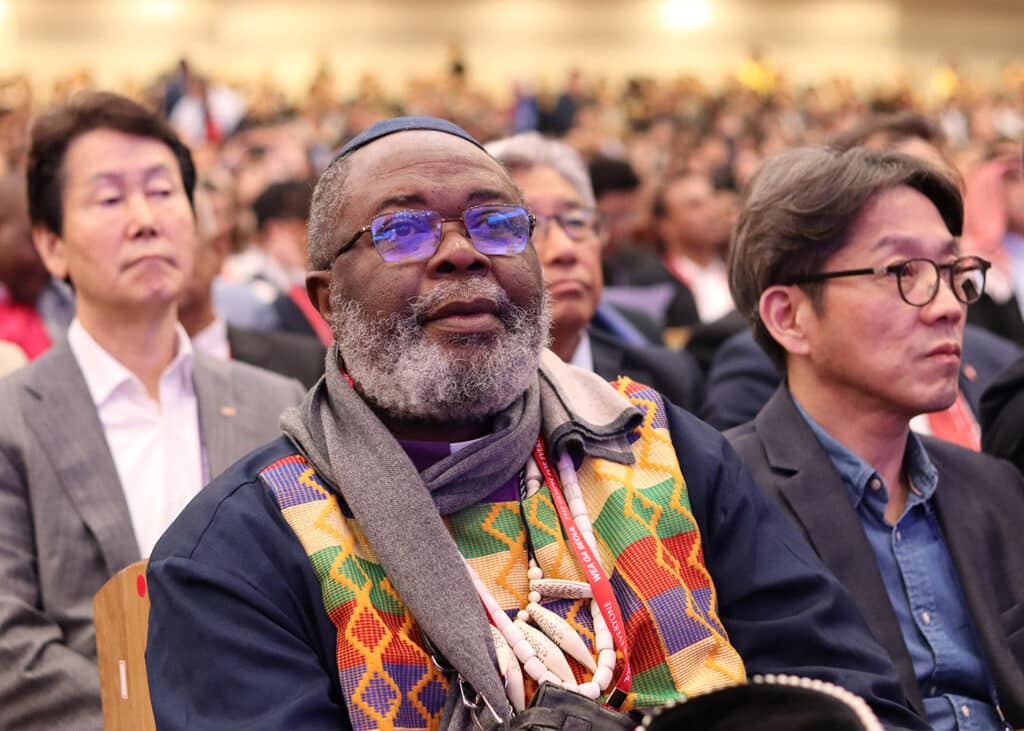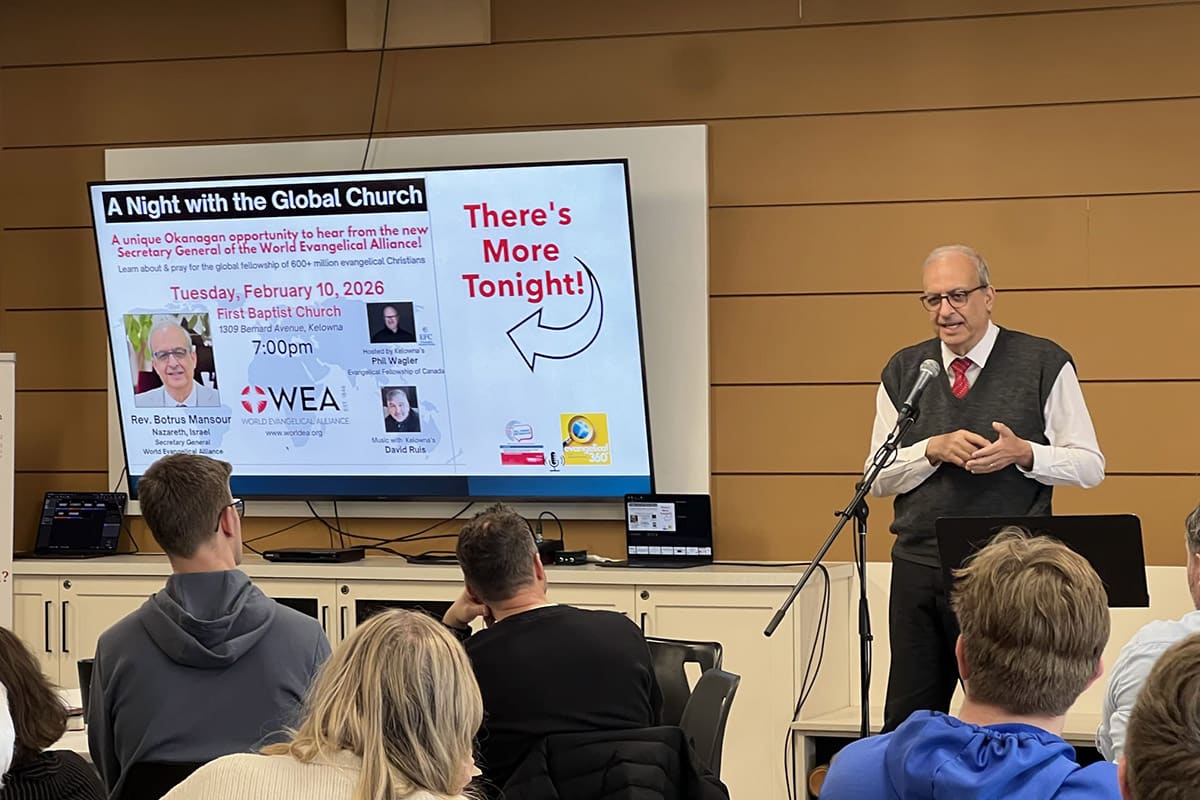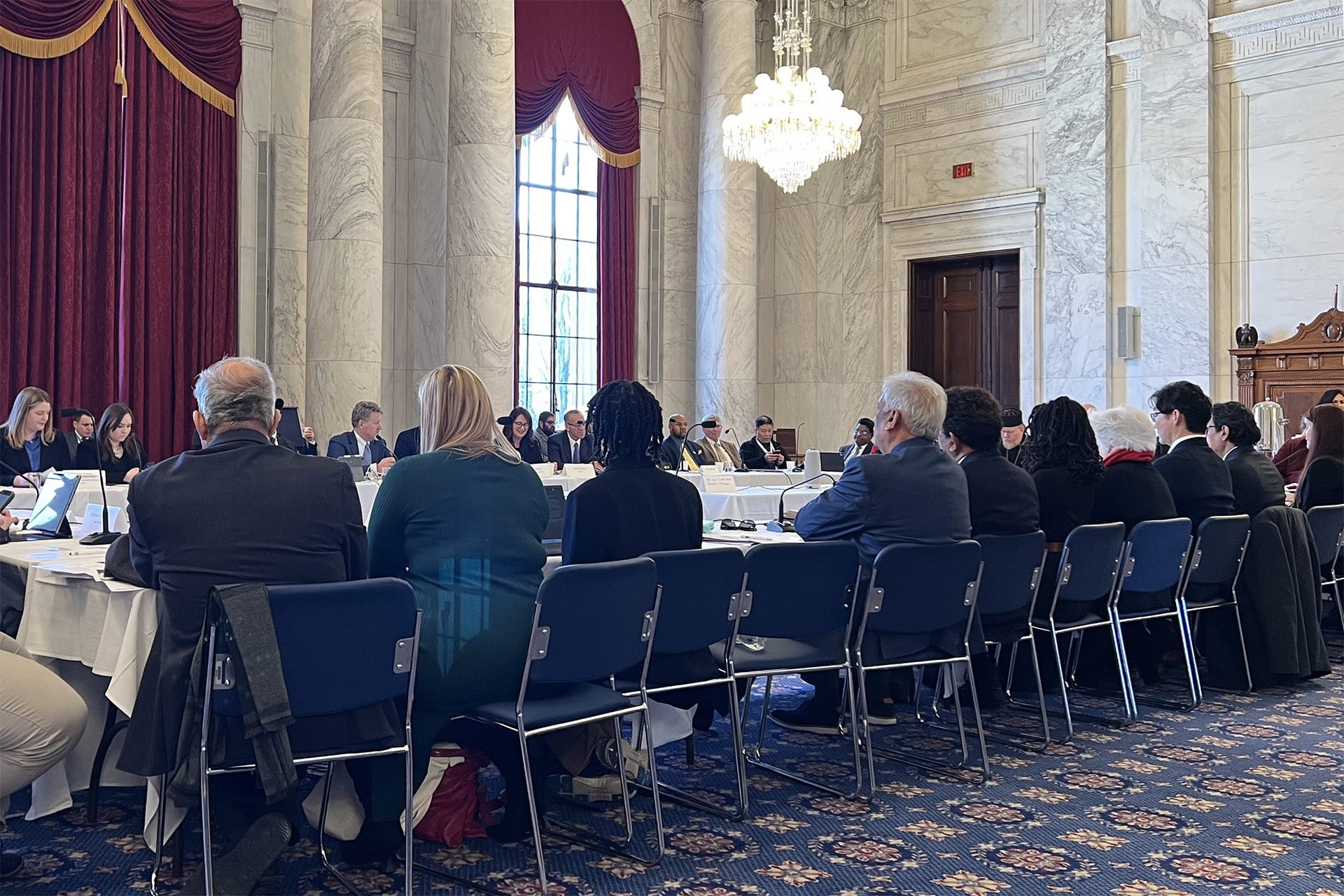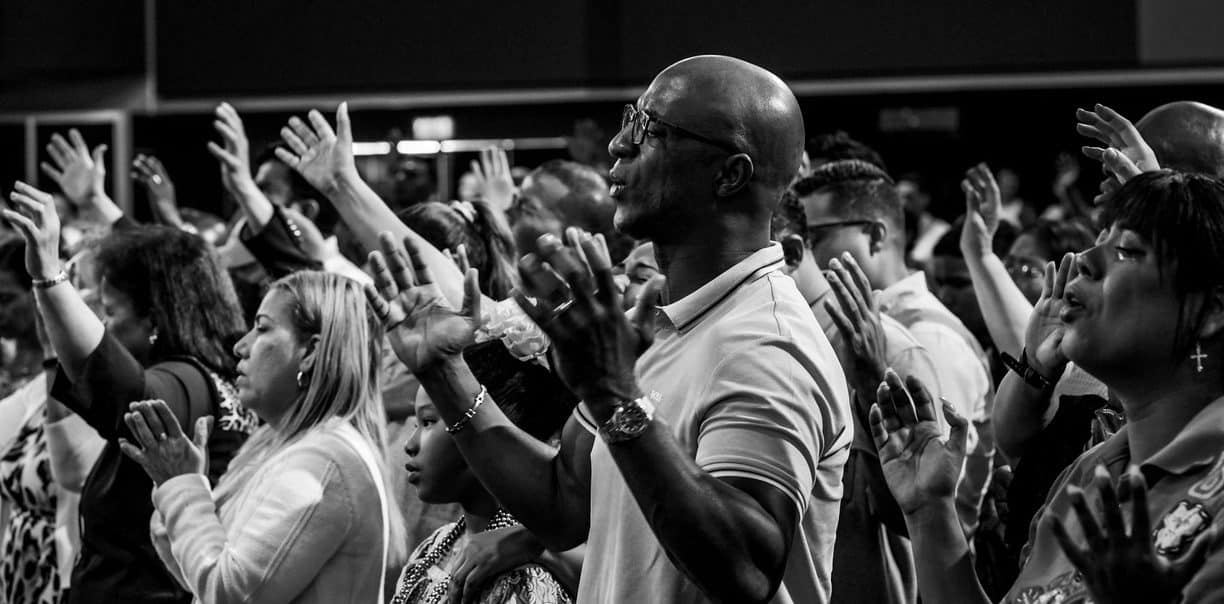SEOUL, SOUTH KOREA (October 28, 2025) – In a powerful display of global Evangelical unity, delegates from 124 countries gathered at the SaRang Church auditorium in Seoul for the World Evangelical Alliance General Assembly 2025, witnessing a moving procession of flags representing 161 nations.
The gathering visually confirms what data now proves: evangelicalism has become a majority-world movement, with 70% of its 650 million adherents residing in Africa, Asia, and Latin America.
“The future of Christianity is already here—and has been for 45 years,” declared Jason Mandryk of Operation World, presenting research showing evangelicals have grown from 8% of global Christianity in 1960 to over 25% today. “Most people alive today were born into a world where Christianity is already a majority-world movement. The notion of Christianity as a white man’s religion is rapidly shrinking in the rear-view mirror.”
Breaking Down Walls, Building One Family
Dr. Seble Daniel, head of the WEA Women’s Commission, challenged delegates with a powerful message of reconciliation drawn from Ephesians 2: “We who were once far off have been brought near. Let us live as people of reconciliation, breaking down walls and opening doors, because in Christ there is no ‘us and them’, there is only one family.”
Her message resonated deeply as she shared how even thriving evangelical churches can harbor hidden divisions, recounting a visit to marginalized artisans in her home country, Ethiopia, who were excluded from fellowship. “Let us live the Gospel not by standing above one another, but by standing together in love, humility, and service.”
Dr. Goodwill Shana, WEA Executive Chair, connected this unity to the Assembly’s theme through a powerful metaphor: “Light is God’s first missionary: it travels, reveals, and transforms. When light passes through a prism, it reveals many colours that make up one radiant whole. We have many colours from Latin America, Oceania, Africa, the Middle East, and Europe, but together we form the light of the Gospel.“

The African Century and Global Growth
The Assembly highlighted Africa’s central role in Christianity’s future, with two-thirds of all Christian population growth through 2050 expected on the continent. Dr. Wanjiru Gitau provided further insight into this phenomenon, stating, “Africa is experiencing significant demographic changes, characterized by a predominantly youthful population that is connected to both the opportunities and anxieties associated with online access. As the middle class becomes increasingly upwardly mobile, the challenge lies in transforming this strong sense of optimism into concrete gospel hope. Investment in high-quality education, both theological and secular, along with improvements in housing, transportation infrastructure, and job creation are key.”
This rapid growth, especially in urban areas where millions are drawn to vibrant evangelical churches, presents urgent challenges. “What does rapid growth entail?” Mandryk asked. “Discipleship and pastoral training must be our highest priorities.”
Echoing this global call, leaders from the Korean church reminded delegates that the remarkable growth of Christianity in Korea was built not on numbers alone but on a deep commitment to discipleship, nurturing believers to live out the Gospel in every part of life. Discipleship involves whole-life surrender and spiritual formation to be more like Jesus. Co-chair of the Seoul Organising Committee, Rev Dr Junh-hyun Oh, has long advocated for Teleios discipleship, “…imbued with the heart of Jesus, training that creates a heart-soil in a believer that is drenched with the blood of Christ.”
Tuesday Focus: Proclaiming Amid Persecution
As the Assembly shifts to Tuesday’s theme, “Proclaim the Gospel,” delegates will hear from those on the frontlines of faith. Martha Das and N’gee Edmond from Nigeria will share testimonies of proclaiming Christ amid persecution, facilitated by Emma van der Deijl, with Maria Kim. George from Open Doors addresses the paradox of Africa’s church, which is simultaneously growing and suffering.
The day’s program includes:
- Dr. Asiri Fernando’s exposition on “He came and preached peace” (Ephesians 2:13-18)
- The Patmos Clusters study reveals where Scripture engagement flourishes despite restrictions
- A special Korean-language presentation on Peace Korea, addressing Gospel proclamation in a divided peninsula
- Celebration of the WEA Theological Commission’s 50th anniversary
- Rev. Dr. Stephen Tong of Indonesia on “Proclaiming Christ in the Midst of Persecution”
A Gospel Movement United by the Jesus model
Mandryk highlights that 1980 was a pivotal year when evangelicalism became the dominant faith in the Global South. This shift was not merely a demographic change; it represented the fulfillment of the Gospel’s promise to reach every nation. This significant event marked a turning point in the history of global Christianity. Today’s Assembly demonstrates that evangelical unity doesn’t erase diversity but celebrates it as essential to global witness.
Rick Warren’s central challenge to delegates is that the modern Church has inherited Jesus’ message but not His method. He calls pastors and believers alike to return to the model Jesus demonstrated — preaching, teaching, healing, praying, and building — as the only way to complete the Great Commission. If the Church learns to do what Jesus did, in the way Jesus did it, with the passion and focus Jesus had for finishing the work His Father gave Him, we can expect to see explosive growth in the Church in the lead-up to 2033.
As delegates prepare for Tuesday’s sessions on proclamation amid persecution, the message is clear: the global evangelical movement stands as one family, diverse in expression but united in purpose—to live and proclaim the Gospel until every nation hears.





Stay Connected